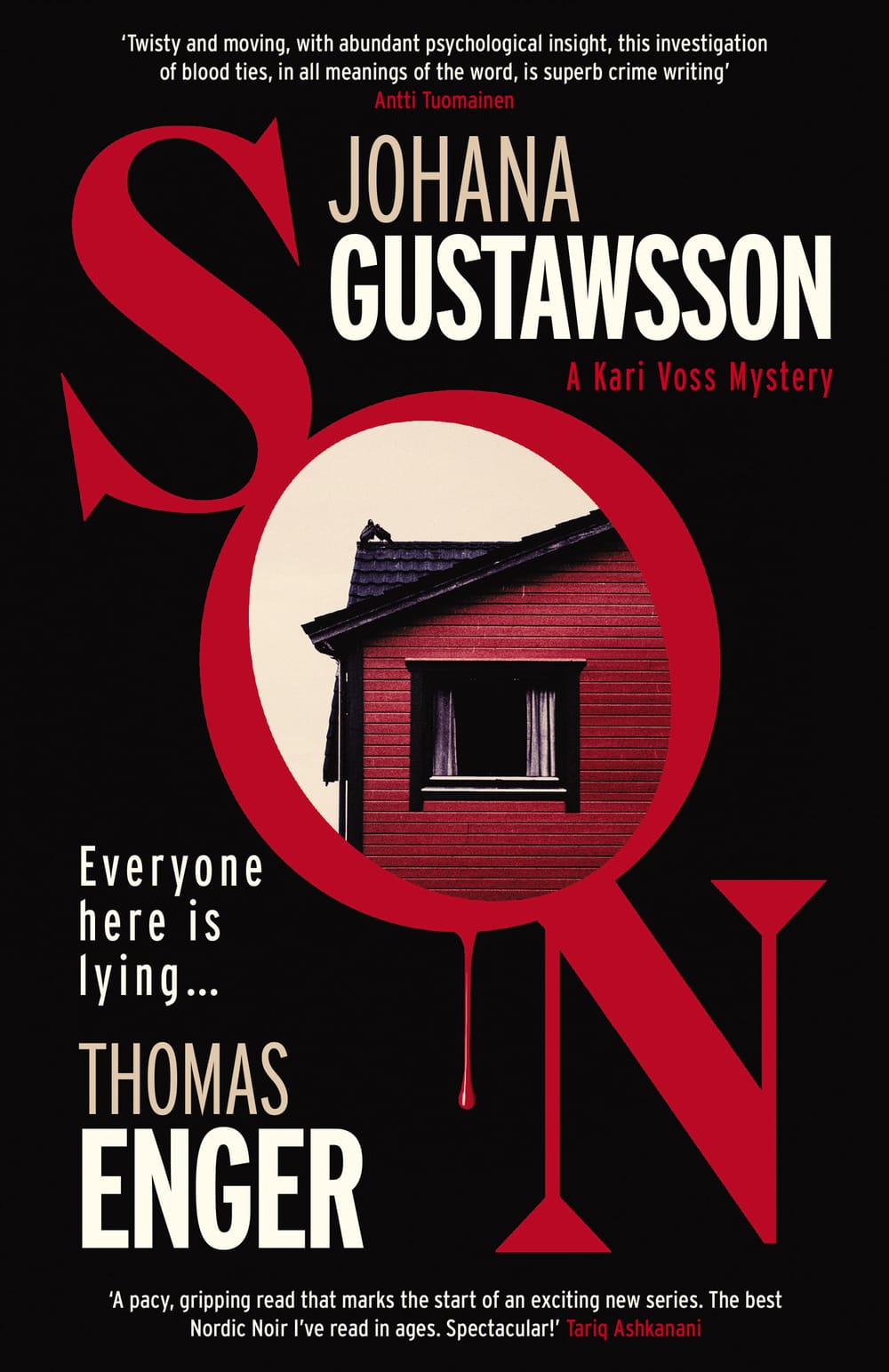Translated by Megan E. Turney | Published by Orenda Books. Now in paperback!

About 20 pages into Madsen’s “Thirty Days of Darkness”, I began to harbor a strong dislike of her main character, esteemed (but not best-selling) Danish author Hannah Krause-Bendix. She’s a judgmental snob who believes that commercial success is beneath her; a two-time nominee for the Nordic Council Literature Prize who has never received a bad review. What does she have to be so bitter and unhappy about? Little did I know how much my opinion of Hannah would evolve in Madsen’s fresh, unusual and satirical take on the Nordic Noir.

Madsen amusingly describes Hannah’s literary efforts in just a few sentences:
“She writes the kind of literature in which an old man takes a sip of coffee, then stops to think for about forty pages, before taking another sip. By that point, it’s not only the coffee that’s gone cold. So have most of her readers…Hannah’s readership is as small as it is elite – despite her literary recognition, she is still an author only by the grace of arts council funding.”
Hannah is writing a new book and is completely stuck; she’s fed up with her editor Bastian and herself in equal measure. Plotting out a love story is no mean feat when you’ve never been in love and you don’t believe in plots. She descends from her ivory tower and uncharacteristically decides to attend a book fair. At the booth with her books, she attacks the poor intern as an “illiterate moron”. To make things worse, Hanna’s bête noir, wildly successful crime writer Jørn Jensen, is speaking at the fair. She despises him and his commercial success and thinks he is the “world’s worst crime writer”. She tells him “any idiot can write a book like this in a month” and as I hoped he would, Jensen challenges her to do it. Hannah must accept.
Hannah needs some help to end her writer’s block and win the challenge. Her editor recommends a trip to the sparsely populated fishing town of Húsafjörður in northern Iceland, where he knows someone with rooms to let. Hannah is apprehensive about spending an entire month in a country she has never been to and whose language she does not speak. Upon arriving in Húsafjörður, she immediately regrets accepting Jensen’s challenge. To add to Hannah’s sense of isolation, her host, Ella speaks no Danish and can only write a little English. Their communication is difficult, which only adds to Hannah’s angst. What the HELL is she doing here and how will she survive the seemingly endless dark mid-winter days?
Luckily for Hannah, (and the reader) there are sinister goings-on in Húsafjörður. A dead body is found in the water; it turns out to be Thor, Ella’s nephew. Hannah goes to the wake with Ella and as is her habit, finds herself in turn sympathetic, self-conscious, and inevitably irritated.
“The house radiates death. Hannah has noticed that when someone dies, an air of
mystery suddenly develops around them, resulting in a bizarre desperation among
those left behind to learn more about the deceased person. ”
After a chat with Viktor, the local policeman, her own curiosity about Thor’s death is awakened; was it an accident, or something more sinister? According to Viktor, Thor can’t swim and never goes near the water. While looking for clues along the shore, Hannah runs into a homeless man, Gisli, who unwittingly leads her to what looks like the murder weapon. Later, someone fires a shotgun into Ella’s house and Hannah is ridden with guilt that it might be due to her investigative efforts. To add to Hannah’s troubles, the much-despised Jørn Jensen unexpectedly arrives in town. Hannah suspects he’s there to thwart her efforts to win the challenge.
As the body count grows in this frozen place, Hannah begins to thaw. She starts to care about the people in the town, particularly Ella, Viktor and his wife Margrét. But how well does she really know them, and who can she trust? Every conversation, every question, appears to point to a solution whose roots lie deep in Húsafjörður’s past.
Just as Hannah’s efforts to probe the truth about the drowning had a profound effect on her, my feelings about Hannah changed until by the end, I came to love and admire her. When she finally discovers the truth, it’s as shocking as it is satisfying. Madsen has written a mystery that beautifully blends satire with intrigue. What reader could ask for more?
Please buy/order this book at your local independent bookstore! To find yours, visit Bookshop.org and Indiebound in the US or Indie Bookshops in the UK/Ireland.





